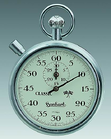 …pacing! It is so crucial to have a careful, measured plan of attack as a part of any standardized test prep regime. But as a veteran AP tutor for high school students across New York, I can tell you that the key to success lies almost entirely in sticking to a well-organized, personally-tailored study schedule.
…pacing! It is so crucial to have a careful, measured plan of attack as a part of any standardized test prep regime. But as a veteran AP tutor for high school students across New York, I can tell you that the key to success lies almost entirely in sticking to a well-organized, personally-tailored study schedule.
Cambridge Coaching does a great job tailoring these preparation schedules to student strengths and weaknesses, but even if you’re just working from a Princeton Review, Kaplan, or College Board book, it’s the kind of thing that you can get started with on your own. Now (early March) is the time to start organizing yourself for these monster May tests. We all know that APs looks great on your college admissions application. So, whether you’re preparing for the AP Spanish, US History, Biology, or even Microeconomics, you’ll be well-served to keep in mind the following tips:
Set aside regular chunks of time
Make this test prep a part of your regular schedule, and choose a convenient time so that it doesn’t become a chore. Whether it’s an hour on Monday, Wednesday, and Friday evenings, an all-day Sunday affair, or each day during your study hall – it’s crucial that you choose a time you can stick to and organize your schedule around. Think of this as putting time in the bank. It’s so much more painless and effective when done in manageable increments – half the battle here is avoiding the stressful (and often disappointing) cramming sessions.
Plot out a calendar
Once you know when and how often you’ll be able to study for the AP over the coming months, pull out a calendar, mark your dates, and count your sessions. Take this number of potential study dates and use it to divide the number of content chapters you need to review to be prepared with all the information that the exam will test. Once you list these individual tasks next to each slot for studying – you’ve made yourself a rudimentary syllabus! Now stick to it – this is the part where perseverance really pays off.
Practice, practice…
Practice (duh) – you need to collect as many practice questions as you can get your hands on. The more you do, the more you’re used to the way that these test-makers frame the issues and look for the right answers. Sprinkle a few practice questions into your review every week, but also be sure to leave yourself at least one open session toward the end of your review to complete a full-length practice exam. This is good even just to get you used to the conditions of the test and the stamina required to get through. But also remember that there are really a pretty limited number of ways to test the same body of information out there – and the more samples you practice with, the better the chances are of running into one of these questions again on the real thing.
So remember that this is the time to strike! For the AP tests coming up in May, the best preparation lies in organizing yourself right now. Of course, we have some of the best tutors in New York, in Boston, and online to keep you organized and motivated – but even if you’re going it alone this season, stick to your schedule and hone your study skills.
My favorite AP is the US history test.

Comments